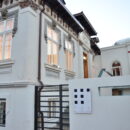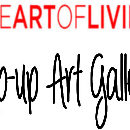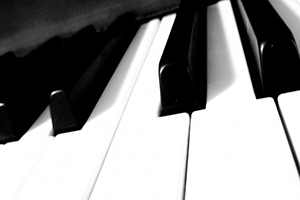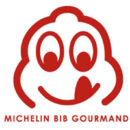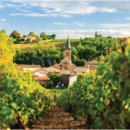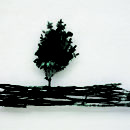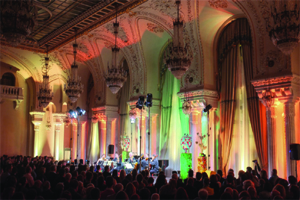
SoNoRo – THE CLASSICAL AVANTGARDE
“I deliberately stayed away from populist decisions that can gurantee success in the short term.”
The first time I attended a SoNoRo concert, I didn’t really know where I was going – a few friends had heard that classical music was being played at Embryo… differently. It was 2006 – the year when SoNoRo came to Bucharest.
Since then, since the first concert I went to, I felt a very strong, positive vibe – that newborn small festival just seemed to have everything it needed to grow, to develop, to cover an area untouched so far. And the 8 years since SoNoRo keeps coming back, more varied and more visible proved that it was.
A modern and innovative festival which, through various programs and locations, through a mix of different genres and incredible interpretations, succeeded to demonstrate, in an inconspicuous way, that in contemporary society chamber music is a form of communication – exciting, affordable and necessary.
From the start, there was a very well defined purpose of the festival – to generate loving and knowledgeable public and to raise awareness and educate the parts of society that have no contact with classical music. Since the first edition, SoNoRo was included in an international network of the kind, from Cantiere di Montepulciano (Italy) to Kobe International Arts Festival (Japan) or sounding Music Jerusalem (Israel). The SoNoRo Festival concept was also taken abroad: SoNoRo’s first edition in Sofia took place in April, and in May the third edition SoNoRo Arezzo was organized. The artists featured in the festival every year are members of the ensemble Raro – Alexander Sitkovetsky (violin), Razvan Popovici (viola), Bernhard Naoki Hedenborg (cello), Diana Ketler (piano), Adrian Brendel (cello), Erik Schumann (violin) Alina Pogostkin (violin), Reto Bieri (clarinet). Alongside them perform many other famous musicians, such as Marcelo Nisinman (bandoneon), Konstantin Lifschitz (piano), Gilles Apap (violin), Andrej Bielow (violin), Olivier Darbellay (horn). A project with such a trajectory has always more behind it than simply a good organisation – it has a particular enthusiasm. And the man with this enthusiasm – the “ideas man” – for SoNoRo is Razvan Popovici. With a lovely and peaceful position as a violist in the Munich Chamber Orchestra, he suddenly decided, after 15 years, to return to Romania and to establish a chamber music festival. Why? How? Who?
And to all these questions – and to some which inevitably appeared along the way, Razvan replied during a leisurely August afternoon:
Why – or how appears a festival of classical music? What do you mean by it, what is there to say, what is the change in the image that people have about classical music, what does not give you peace and pushes you to do this?
A classical music festival can appear for several reasons: the lack of a sufficient number of such initiatives, in an effort to showcase a particular music or a person’s madness is up to something, something that really burns. In the SoNoRo Festival’s as well as my case, I think
all three reasons are valid. From the beginning we tried to build not only a festival but as something that can inspire others to brave action. SoNoRo always showed that the educated choice of both the musical programs and of the whole concept each year, is the initiative to be successful in the long term. I deliberately stayed away from populist decisions that can guarantee success in the short term, long term leading only to commonplace platitude and trivialization. I’m not exaggerating when I am saying that there are many “aficionados” who follow absolutely all of SoNoRo’s activities closely, both in the country and abroad. What we started to change in these seven years was diminishing the reservation from classical music of the young and successful in Romania. Although they had access to all material possibilities imaginable, they had only peripheral contact with this genre and virtually no desire to get closer. And to chamber music – no desire at all. It is one of the great success, to open this extremely valuable universe to so many people and to make them curious. But I’m not a supporter of attempts to bring classical music on a stadium and to democratize it excessively. Such experiments have
failed everywhere, no matter how proud some organizers are of their achievements to convert huge masses of listeners. Classical music needs to be discovered by each of them in an intimate, noble and personal framework.
Why do you continue?
The indescribable pleasure to do something which profoundly influences Romanian cultural life in the long term. The excitement of playing annualy a very dynamic game at the end of which I get to meet many happy faces. Personal satisfaction from the stage during concerts. One glance into the packed hall room proves that chamber music is the best existing music, a
statement confirmed by tens of thousands of people attending the SoNoRo concerts during the previous years. How did the best moment until now look like? And how did it look like when you were about to let go? The 5 years anniversary concert at the Bragadiru Palace, when the audience started to spontaneously sing “Happy Birthday”. And in return, the artists threw newly received roses to listeners. To quit? In the first year when, because of unfulfilled promises, 20,000 euros were missing, two weeks before the start of the festival. But, because SoNoRo was born under a good star, here we are at the eighth edition!
You’re friends with all or most of those who play at SoNoRo. You played with them or you heard them in the hall. This creates a certain kind of energy, tension, pleasure of something else that makes SoNoRo absolutely different from all other music festivals…
The musicians invited are soloists and chamber musicians with a worldwide recognition. I know the majority personally having played with them in different corners of the world. The most of them started in Romania in the Festival’s concerts. The fact that many of them have honored the invitation several times speaks for itself. I think the personal and generous atmosphere of the Festival distinguishes it from the start from other similar initiatives. Also, the very high artistic quality, where both I and Diana Ketler (London pianist with whom I share the artistic direction of the festival), have avoided any compromise, locates it in a place where good reputation matters the most. And the love for detail is a priority for the entire SoNoRo team, which, I think, is very visible in all our activities.


